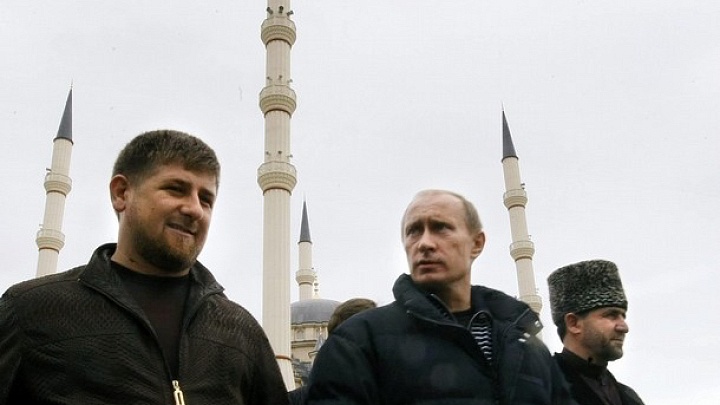
Remarkable that over a half century after the fall of Nazism and the worst of Soviet oppression and Maoism, we still don’t understand dictatorships. We think we do. We create typologies, as Juan Linz and Barbara Geddes and other remarkable social scientists have done going back to the 1970s. Around then, a young Polish journalist named Ryszard Kapuscinski befriended several Ethiopian officials, and so we got a glimpse behind the scenes of the fifty-year regime of Haile Selassie. But I don’t know many bloggers in North Korea or Turkmenistan. Defectors are few and far between. And yet we still cling to Cold War-era conceptualizations of authoritarian states.
Put simply, we have spent too much time on the outliers – the very walled off corners of the globe that intrigue us. Yet, under our very noses and sitting across from our own diplomats’ negotiating tables, are the ones we should be worried about. It is states like Saudi Arabia and Russia that should give us pause, the latter of which is part of most of the prestigious clubs of the world (minus the G-8, as of last year). And yet these are places where a prominent dissident and former government minister can be gunned down in broad daylight literally in front of the headquarters of the Russian state. This would be the equivalent of Donald Trump or Glenn Beck being gunned down before the cameras on Pennsylvania Avenue, then panning to a shot of an upstairs light going off in the West Wing for dramatic effect.
For a true dictatorship to be sustainable, it must do two things. First, the dictator does not need to make direct orders. Nobody will pin Boris Nemtsov’s murder on anyone tied to the Kremlin. It is enough to lift an eyelid, or create an atmosphere of erasing one’s enemies, without ever giving the command. It’s encoded. (I’m reminded of Henry II & Thomas Becket: “Will no one ride me of this turbulent priest?” And poof, he is gone.) As a senior editor from Kommsersant told a private think tank audience a few years back, nobody from the Kremlin ever calls him and explicitly instructs him on what to put on the front page. It’s implied, it’s understood. The system moves, the orchestra plays without its conductor. There are codes. Editors and others in Russia’s elite have internalized a new set of strict Panopticon-like norms, not unlike those of their Soviet predecessors, but all the more challenging in a country that is not walled off from the outside world and whose internet is more or less uncensored. A dictatorship thrives on silence. If Putin could listen to the Nixon tapes, cursing, micromanaging, crying at all his delusional enemies, he would let out a laugh.
Second, dictators create the allusion of sophistication, rule of law, modernity. I cringe now when I read Western media’s full-swallow of Dmitri Medvedev’s “modernization” agenda in 2009 (For kicks, Google the words “modernization,” “Russia,” and “thaw” to see how many think-tank commentators were duped), as if Moscow were Epcot Center or a Silicon Valley in waiting. This is not new. Kapuscinski recalls how Selassie created a European-style modern university to give off a certain cultivated air to Ethiopia for visitors to marvel at but also overlook the other absurdities of his power.
The Banality of Evil
But there is something pettier about dictatorships that should not be discounted. Recall that Selassie, according to Kapuscinski, had what he called a cuckoo, a servant whose one task was to bow as a signal after each hour passed (The “emperor” also had someone to slide a pillow under his feet so they would not dangle when sitting on the throne). These might strike some observers as insignificant, but there were signs early on that Putin shared similar traits and was a budding megalomaniac. When I worked as a journalist in Moscow in 2001, I was told he could not be photographed at certain angles, for fear it would highlight his diminutive stature next to his foreign counterparts. Similarly, we all heard stories about the special soles he wore, to make himself look taller. I remember clipping a cartoon that lampooned the obsequiousness of the Russian press way back in 2002, asking preposterously softball questions about Putin’s dog Koni.
In any sane world, this would be enough to say: Enough is enough. We may not want war, but war is preferable to a world in which such acts go unpunished.
These little signposts are what I’m reminded of 13 years later, and it is why I’m not surprised when I read about this
